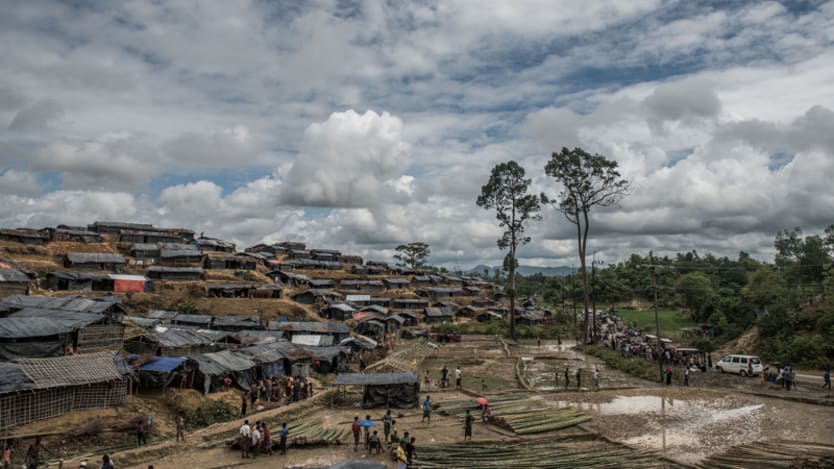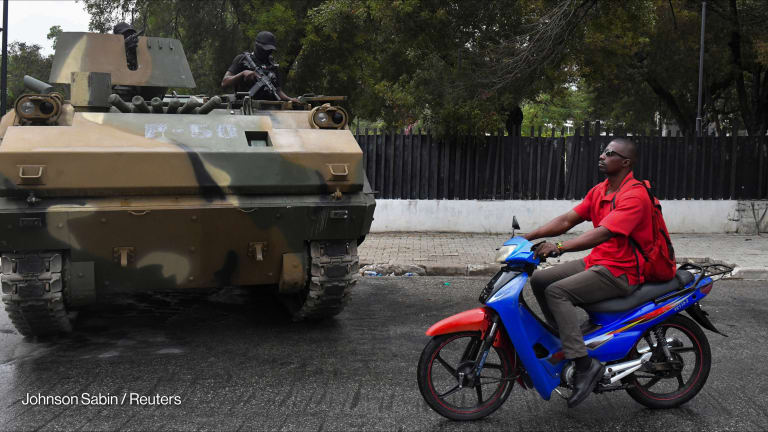
WASHINGTON — A lack of access is the biggest impediment to aid from the United States reaching the Rohingya Muslim minority in northern Rakhine state in Myanmar, U.S. officials said in a congressional hearing on Thursday.
After an August 25 attack on state security by Rohingya militants, the civilian population has been targeted by the military in the past six weeks in a violent surge that many have defined as ethnic cleansing. The unprecedented exodus — about 500,000 Rohingya crossed the border to Bangladesh in the past few weeks — is more rapid than those the world has seen in Iraq, Syria, or South Sudan. Bangladesh is now home to about 1 million Rohingya refugees, according to U.S. officials, and about 200,000 Rohingya are displaced within Myanmar.
“The challenge is not a lack of resources, but a lack of access,” said V. Kate Somvongsiri, the acting deputy assistant administrator for the U.S. Agency for International Development’s Bureau for Democracy, Conflict and Humanitarian Assistance. “Many USAID partners were forced to suspend work due to military action.”
The U.S. cannot access northern Rakhine state, and even has challenges with access in the border region, but it continues some work in other parts of the country, including supporting civil society to counter hate speech, she said at the hearing.
As a result of the government and military crackdown on access for USAID and NGOs most of the U.S. efforts are supporting Rohingya refugees in Bangladesh, though flooding there has slowed aid delivery and a recent report said the influx of new refugees is outpacing resources, creating further challenges and the potential for disease to spread.
The U.S. government allocated an additional $32 million in funds to address the Rohingya crisis in late September, with $28 million going to support refugees in Bangladesh and the remaining $4 million set to support efforts within Myanmar.
“This administration is undertaking all efforts to end suffering immediately,” and has “made clear to officials [in Myanmar] that they need to take steps to stop violence,” said W. Patrick Murphy, the U.S. State Department’s deputy assistant secretary for Southeast Asia.
Several members of Congress asked whether those diplomatic conversations and the efforts the U.S. has undertaken have made a difference in ending the violence and enabling humanitarian efforts.
Murphy said there have been “some small signs of progress,” including that the Red Cross was granted access to Rakhine state. The government and military in Myanmar had initially said that all aid had to be funneled through them. USAID, United Nations agencies, and most other NGOs are still prohibited from accessing the region.
The Red Cross, however, has said it will be unable to meet all the needs, said Mark Storella, the deputy assistant secretary at the U.S. State Department’s Bureau of Population, Refugees, and Migration, and so officials must allow access to U.N. agencies and NGOs that have experience working in the area.
In the meantime, there is “not much from a development assistance” perspective that USAID can do unless access and more information is provided, Somvongsiri said. The agency is calling for “unfettered access.”
But access goes beyond convincing the country’s leadership and requires working with local leaders so that false rumors fanned by the government don’t lead to further attacks on aid shipments. A mob of hundreds attacked an aid shipment in Rakhine state last week, and while local authorities stopped the attack, it illustrates that some groups other than the Rohingya believe their needs are not being met, Murphy said.
Much of the hearing focused on the U.S. government’s diplomatic response to the situation and how it could step up pressure on the government and military in Myanmar to stop the violence, allow aid to reach the Rohingya, and work toward a long-term peaceful solution.
Several tense moments came in exchanges about why administration officials stopped short of calling the situation ethnic cleansing, though U.S. Ambassador to the U.N. Nikki Haley came close when she described it as “a brutal, sustained campaign to cleanse the country of an ethnic minority.”
Among suggested sanctions, some pointed to publicly shaming Myanmar’s leadership, but a common theme was one of urgency. Members of the committee demanded immediate action, asking the administration representatives what actions could bring results now.
“What can have an effect right now?” asked Rep. Scott Perry, a Republican from Pennsylvania. “People are dying today as we sit here.”
Read more international development news online, and subscribe to The Development Newswire to receive the latest from the world’s leading donors and decision-makers — emailed to you free every business day.
Read more Devex coverage:
► How can the US and humanitarian groups respond to the Rohingya crisis?
► As the Rohingya crisis rages on, international actors ramp up pressure
► In Bangladesh, WHO hurries to thwart possible Rohingya refugee disease outbreak
► Aid workers under attack in Myanmar as Rohingya conflict worsens
Search for articles
Most Read
- 1
- 2
- 3
- 4
- 5








